Moon Sports > Basketball > Unqualified second-in-command? How did Jiewei transform into a historical deputy?
Unqualified second-in-command? How did Jiewei transform into a historical deputy?
In the fifth game of the finals, Thunder third-year forward Jaylen Williams shined, making 14 of 25 shots, scoring 40 points, 6 rebounds and 4 assists, becoming the third youngest player in the past 50 years and scoring 40 points in the finals. If the number of game samples is increased, Jewe is the fifth player in the league to score more than 25 points in three consecutive games in the finals before the age of 25.
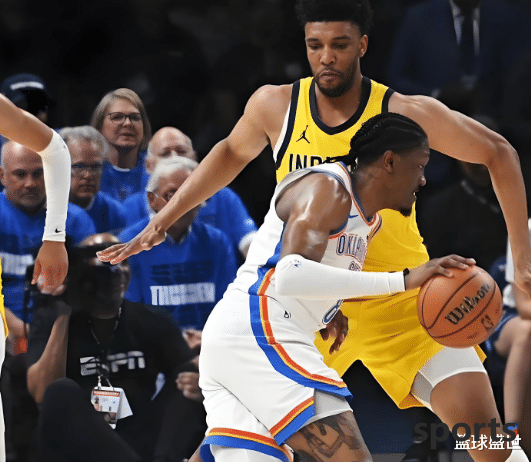
A month before the finals, the Thunder were once dragged into the quagmire by the Nuggets in the Western Conference semi-finals, and the second-in-commander of the team, Javi, fell to freezing point. He averaged only 16.5 points per game in the first six games of the series, shot only 33.7%, and his three-point shooting percentage was even sluggish to 21.2%. Judging from the remarks at that time, it is generally believed that Jewei is not a qualified second-in-command team in the championship level.
But after that, Jiewei's form began to recover. He scored 24 points in the semi-final tiebreaker and helped the team advance. In the Western Conference Finals, he averaged 22.2 points with nearly 50% efficiency, successfully helping the team advance to the finals with a large score.
After Tianwangshan's historical performance, Jiewei replied to reporters in an interview that he didn't think that he was just a young player in the third year of the league, because that would give him the opportunity to make excuses, and pressure was also an alternative honor for him.
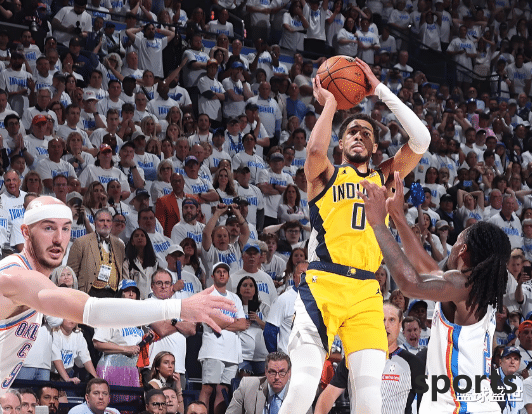
With the experience of losing the playoffs last season, he once became the target of public criticism. Even after being defeated in the finals, he improved a lot on his psychological level and his confidence in becoming a player of different levels is getting better.
In order to solve the problem of the offensive crash at the last moment of the first game and Alexander's physical loss, which led to the reversal of the Pacers, the Thunder took the initiative to adjust in the second game, activated Harten, and arranged his offensive strategy of setting up a big step outside the three-point line and even the logo position, allowing Alexander to simply break through and score.
Of course, the Pacers are not a fuel-saving lamp. They sent Nembhard in the third battle, and this Alexander's Canadian teammate once caused quite a lot of trouble to the Thunder.
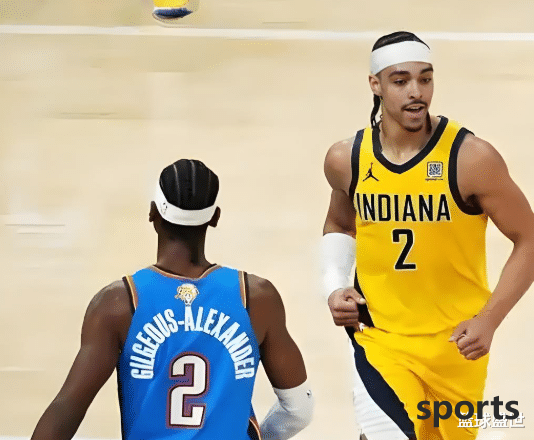
He almost died in the whole game. From the backcourt serve, pick-and-roll start to the final breakthrough, Nembhard was close to Alexander, and the constant entanglement made Alexander play very uncomfortable. When the team leader was unable to gain an advantage effectively, the Thunder's offensive system surrounding Alexander's operations naturally stagnated, and the series also fell into a backward situation for a while.
The Pacers in the fourth game remained closely watching the situation, and even started the full-game pressure from the beginning of the game. Harten's pick-and-roll position even pulled directly from the logo position to the backcourt area, so that Alexander could get rid of Nembhard's defense as much as possible.
This part requires special attention to the adjustment of the Thunder coach, actively adjusting the player's playing time, choosing to lengthen the rotation, while saving the physical strength of the core players, gradually change from the mode where Alexander takes over the ball and others respond. Since the Pacers focus on Alexander's defense, they will use his attraction to design a lot of unball covers to increase the transfer balls on the strong and weak sides to create opportunities.
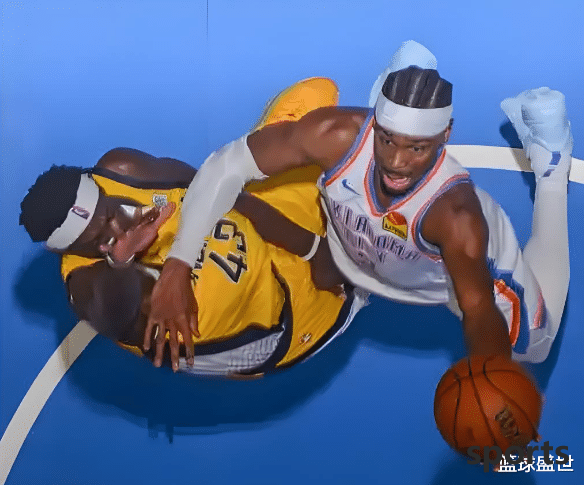
Thunder's core offensive tactics have become the small-scale cooperation between Jewe and Harten, using their flexible ball-free instinct and excellent passing awareness to constantly cause trouble for the Pacers. Hatten has a tricky floor pass, and is a partner with an empty cut player who is good at back-running, while Jewei continues to use his solid cover to accelerate breakthroughs from the backcourt, attacking the Pacers' inside retreat steps, relying on speed and body shape to kill opponents.
Starting from the third game of the series, Jewe's average score, personal usage rate, and average touches per game were the highest in the Thunder team, and directly replacing Alexander became the team's number one offensive choice.
Five games in the finals, the average number of touches between Alexander and Jewish:
First game: Alexander 77 times, Jewish 63 times, Jewish
First game: Alexander 70 times, Jewish 63 times, Jewish
First game: Alexander 64 times, Jewish 69 times, Jewish
First game: Alexander 61 times, Jewish 72 times, Fifth game: Asia Resander 58 times and Jewe 66 times
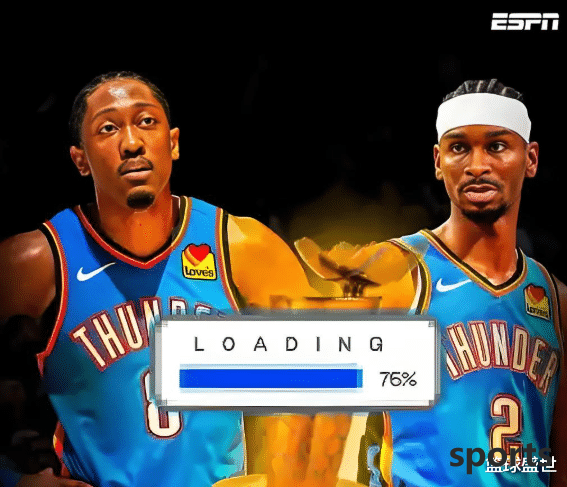
Thanks to Jewe's outstanding performance, Alexander was able to save his physical fitness to a critical moment. He scored 15 points in the last five minutes of the fourth game, helping the team get the match point first. In the fifth game, he scored 31 points, 10 assists, 2 rebounds, 4 steals and 2 blocks. The combination of the two teams finally brought the Thunder to a position that was only one victory away from the championship.
For Jewei's masterpiece of Tianwangshan's career, 40 points, 6 rebounds and 4 assists. Let's split these 40 points, and you will find that Jewei's score mainly comes from four types: support for empty cuts without the ball and Harteng, breakthroughs from weak side to external lines, direct attack on the basket after pick-and-roll, and conversion attacks from defensive counterattack.
Compared with that, most offenses are not too difficult to take, and for these simple goal rounds, it does not seem to meet the standards of Volkswagen fans for a best-selling player, or even a maximum-paid player in the future.
But this is exactly Jewe's advantage. For many players, finding easy scoring opportunities is also a kind of ability. Many star players do not have the exact sense of running position like Jewe, or the flexible mode of switching between holding the ball and not having the ball at any time. No matter which one, as long as it can cause direct damage to the opponent, this is his best weapon.
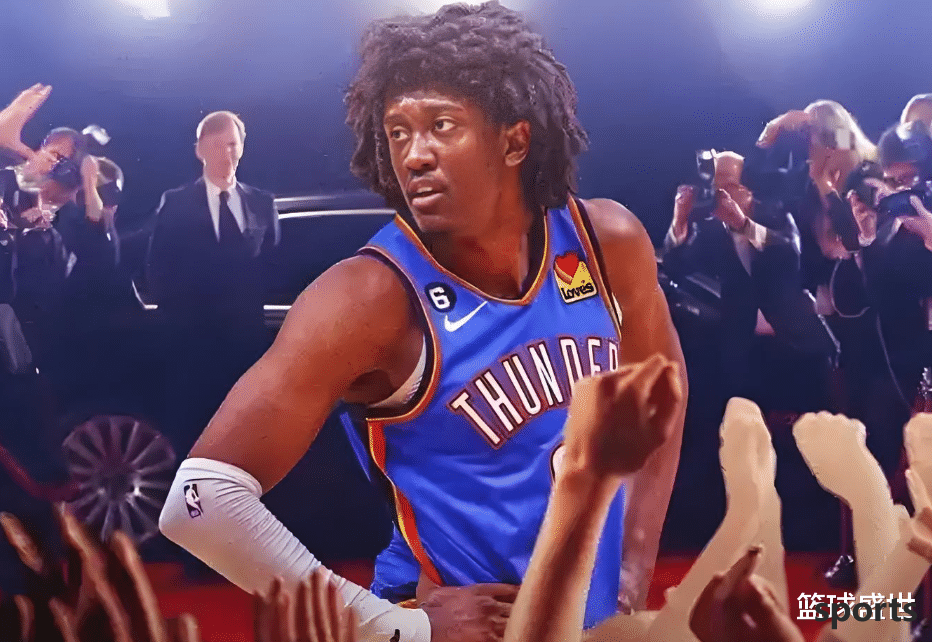
Related Posts
TA selected the top ten wonderful moments of the 21st century: James ranked first in the tiebreaker with 81%; Kobe ranked second with 81
BasketballNovember 22nd, the American media TheAthletic selected the top ten NBA moments since the 21st century. Among them, James ranked first with his biggest shot in G7 of the 2016 Finals, Kobe's 81 points ranked second, and Ray Allen's corner thre...
moreThe Mavericks are preparing for a major overhaul. The player supermarket has opened, and many main players have been put on the shelves. They will rebuild around the No. 1 pick.
BasketballThe Dallas Mavericks have had a devastating start to the season. In fact, at the beginning of the season, the outside world was relatively optimistic about the Mavericks. With the addition of the No. 1 pick, and no injuries to the team, they were al...
moreCollins started 6 games, averaging 9.3 points, 4.5 rebounds and 0 assists, shooting 40.7%% from the field and 13.3% from three-point range.
BasketballHupu News November 21st NBA regular season, the Clippers lost to the Magic 101-129 and suffered a three-game losing streak. In this game, Clippers player John Collins made 4 of 8 shots, 0 of 1 three-pointers, scored 9 points, 4 rebounds, 1 steal, 1...
more
Hot Posts
- Best Rookie? No. 4 overall pick Knipur, how amazing is he?
- Carter Jr.: We know what Blake is capable of and the team is stronger when he stays aggressive
- Seth Curry - Brothers on the same stage, Seth fights for the championship
- Anthony is officially inducted into the Hall of Fame! Maybe he only retired from the Knicks No. 7, but the Nuggets No. 15 cannot retire?
- NBA offseason turmoil: The giant chess game behind a billion-dollar contract
- Scott: Tatum seems to die when his Achilles tendon breaks, but Kobe will never do this
- American News: The Cavaliers don t need to trade core players such as Garland. They still have great potential if they are not the Lakers.
- Successfully played the role of the surprise! The Pacers forward performs amazingly in overtime?
- Questioning the Mavericks to Becoming the Mavericks! Famous reporter: Antetokounmpo is on his way to the Lakers
- Homegren burst! Thunder 149-106 Nuggets, Alexander watches 34+4+7, Harten 14+8+5
Recent Posts
-
Second to last in the Western Conference! 37+9+9! Looking back at the epic transaction, three winners and three losers were born
-
Those who were tragically laid off, where will these two NBA players be next?
-
Four games! What level is Jaylen Williams in the second round?
-
Trading frenzy in the new season! US media: The Lakers are targeting Marca! Are the Rockets chasing Trae Young?
-
Official certification! NBA official and trainers jointly release Love s recent three-point training video
-
Jordan lies on a 500 million plane to take a yacht of 800 million yuan, and takes his wife and father-in-law to lie down and smoke cigars
-
James forwards Hennessy s latest ad! Lakers fans lawsuit is expected to be dismissed: the latter has no legal basis
-
Yang Hansen and Klingen staged a hand-to-hand battle, fiercely confronting each other and watching, and also accepted an exclusive interview with CCTV.
-
It s really worse than another game! How should the Nuggets arrange the playing time of the forward general next?
-
Halliburton left with a smile: G5 sleepwalking in the Eastern Conference Final only 2 of 7 shots surrendered, one god and one ghost and one can cause heated discussion